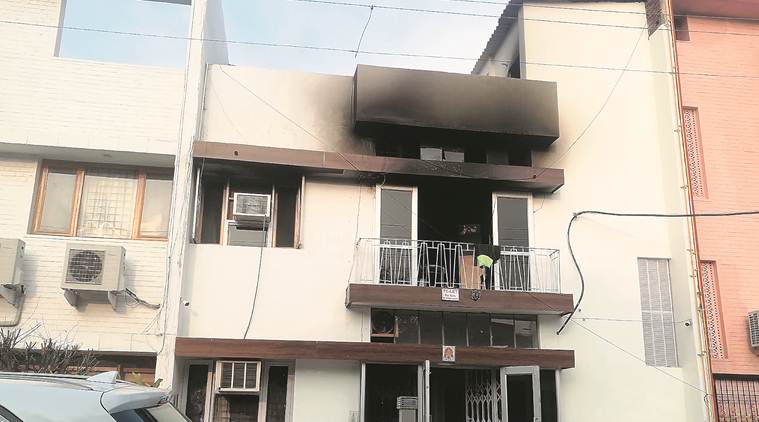For a total strength of more than 2,000 students, there are only ten seats each for men and women hostellers at PGGC. “The women hostellers are adjusted in the Home Science college in Sector 10 and men at the college of education hostel in Sector 20,” says Rosy Walia, principal of PGGC.
“Where are we supposed to stay? We don’t have adequate number of hostels and the PGs have turned out to be so unsafe and many will be shut down soon, so then where will the students from our college go?” asks Nitesh Sharma, president of the Student Council of the Post Graduate Government College (PGGC) in Sector 46. Students from the college staged a protest on Wednesday asking for adequate hostel facilities to be made available to them.
For a total strength of more than 2,000 students, there are only ten seats each for men and women hostellers at PGGC. “The women hostellers are adjusted in the Home Science college in Sector 10 and men at the college of education hostel in Sector 20,” says Rosy Walia, principal of PGGC. Furthermore, a file for a project to build a hostel is allegedly long pending with the administration’s engineering department and is yet to be approved. “It is clearly a big issue and a hassle for students. There is no doubt about that,” claims Walia.
But beyond PGGC, the paucity of hostels for an ever growing student population is rampant across higher education institutes and colleges in the city. In light of the demise of three girls in a fire at a PG in Sector 32, students living outside hostels are worried if a crackdown on PGs will leave them with nowhere to go. A girl from MCM DAV college living in a PG says: “My parents have been so worried since the fire and the the death of three girls. They want me to make sure I am living in a safe and legal PG. But it is hard to find those at a cheap rate sometimes so I am not sure what I will do if they shut down my PG”.
Panjab University, which has a total strength of more than 19,000 students, can accommodate around 7,000 students in its hostels. “If you exclude the evening school students and other students doing diploma courses, we have only about 1,600 students eligible for hostels. Furthermore, some students are locals so they don’t even need hostels,” says an official source, who adds that a new hostel for girls will be operative from the next semester.
Furthermore, apart from certain reserved seats in hostels, rooms are usually allocated on the basis of merit and not on the basis of how far the student comes from. Often students from far flung regions are put on waiting lists for more than a few semesters until they resort to living in cramped PGs. Many students from north eastern states reside in PGs located in nearby localities such as Khudda Lahora, or stay illegally with their friends in hostel rooms for days, waiting for a room to be allotted to them.
Still others have to make do by spending the night in the university library. “I don’t have a hostel room and I can no longer stay with the friend who I was residing with for a few months. I can’t stay at a PG because its too far and commuting in late evenings might pose safety concerns, so sometimes I just sleep in the library. So do many other girls from PU actually,” revealed a student on the condition of anonymity. According to the student, since she has to spend most of her time inside campus, finding a cheap and safe accommodation close by is next to impossible, so she makes do with her makeshift arrangement. “At least inside campus we are comfortable and relatively safe,” she adds.
Beyond the PU campus, affiliated colleges across the city have far from adequate hostel accommodations. In GGDSD college, 700 hostel rooms are available for a strength of more than 7,000 students. In MCM DAV college, 1,000 hostel rooms are available for a total strength of 5,000 students. Though some colleges reserve hostel accommodations for international students, most rooms are allocated purely on the basis of merit, making no space to consider where the student is based out of, or the urgency of their need for a safe and affordable accommodation while pursuing an education far from home.
Source: Read Full Article





